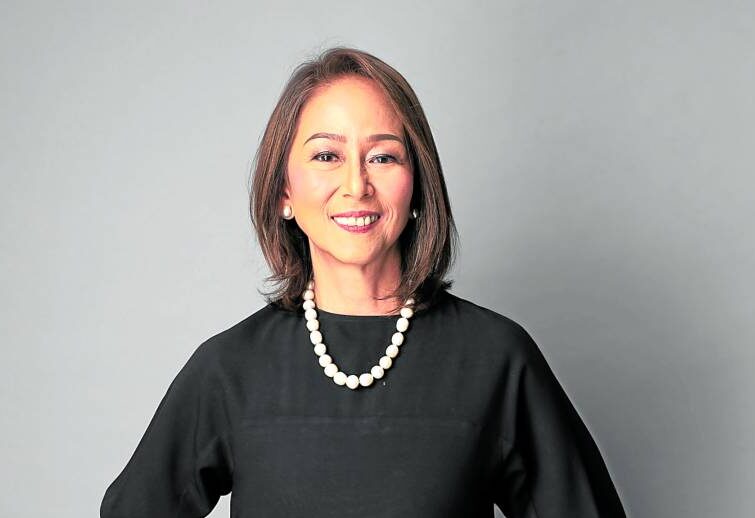
Marie Josephine M. Ocampo —CONTRIBUTED PHOTO
Women’s roles in our society are important food for thought as we celebrate National Women’s Month. The celebration’s theme, WE (Women and Everyone) for gender equality and inclusive society, prompts us to reflect on women’s participation across key sectors.
Based on the World Economic Forum’s 2023 Global Gender Gap Report, the Philippines remains the top-ranked country in Asia for gender equality, placing 16th out of 146 countries. Economic participation and opportunity are among the factors assessed, referring to the availability of employment and access to the labor market. Simply put, for the gender gap to narrow, women need to have access to quality jobs and business opportunities.
One way to ensure women’s economic participation is through entrepreneurship, which comes in various forms. Filipinas have a long history of ingenuity and resourcefulness, evident in the sari-sari stores, market stalls, carinderias, online shops and similar businesses throughout the country. These endeavors, regardless of scale, contribute to the economic dynamism and vibrancy of communities.
These businesses are classified as micro, small and medium-sized enterprises (MSMEs). As of 2022, the Philippine Statistics Authority reported that MSMEs accounted for 99.59 percent of total businesses in the country.
The majority of these are microenterprises (90.49 percent) followed by small enterprises (8.69 percent). MSMEs generate 40 percent of our gross domestic product and 65.1 percent of total employment. With these contributions, MSMEs can be considered the cornerstone of the Philippine economic landscape.
READ: Ecosystem of support for small entrepreneurs
Where are women in the picture? The latest available data show that around 53 percent of MSMEs are women-led (UN Women, 2022). This significant presence highlights women’s crucial role in the sector. To further empower women entrepreneurs, fostering their participation is essential.
Barriers encountered
2023 Asian Development Bank study reported the following barriers that women encounter in the MSME sector:
- Access to credit and capital: Women entrepreneurs tend to be more hesitant to apply for funding because they believe that the cost, process and documentation requirements are complex.
- Utilization of financial services: Only 17 percent of women-led MSMEs use a business or merchant account compared with 39 percent of men-owned MSMEs.
- Adoption of digital financial services: Only 28 percent of women-led MSMEs use digital financial services versus the 44-percent adoption rate of male counterparts.
Addressing these binding constraints would require the following solutions: implementing policies for the empowerment of women-led MSMEs, raising awareness about credit facilities and digital financial services and tailoring financial products to meet the needs of women entrepreneurs.
Initiatives to address issues
Some measures that aim to promote the welfare of MSMEs are already in place. One is the National Strategy for Financial Inclusion (NSFI) 2022-2028 of the Bangko Sentral ng Pilipinas. The NSFI identifies strategic objectives and programs to accelerate financial inclusion among Filipinos.
One of its priorities is enhancing the MSME financing ecosystem by strengthening local government-based credit enhancement schemes, boosting the capabilities of rural financial institutions for MSME lending, and developing frameworks and tools for collecting and sharing MSME data for credit evaluation, among others.
Another is the recently signed Tatak Pinoy Act. This aims to strengthen the government’s collaboration with the private sector to support domestic enterprises in promoting the global competitiveness of local goods and services.
The law has a key provision on access to financing for MSMEs (Sec. 13), which states that the state and private financial institutions should ensure availability of low-interest or flexible term loan programs, credit guarantee programs and other modes of financing for MSMEs.
Private banks also do their part to bring innovative financial services to MSMEs. BanKo, the microfinance arm of the Bank of the Philippine Islands, is dedicated to offering accessible and affordable financial services to support the government’s financial inclusion strategies.
As of 2022, BanKo has assisted close to 300,000 self-employed microentrepreneurs, with a total loan disbursement of P37.6 billion.
BanKo offers low-interest credit facilities specifically tailored to support businesses through their NegosyoKo program. These loans come with flexible repayment terms and simple application requirements, such as valid ID, utility bills and barangay or mayor’s permits.
Microentrepreneurs
Notably, 75 percent of businesses supported by NegosyoKo are women-owned, highlighting the significant impact on women entrepreneurs. Building on this success, BanKo has introduced NegosyoKo Lite, an even more accessible option, offering loans as low as P10,000, without interest. NegosyoKo is also bundled with Secure Assist, a microinsurance product that gives cash assistance for damaged properties caused by flooding.
Beyond credit, BanKo offers deposit solutions that allow women microentrepreneurs to manage their cash flows. PondoKo Savings is a basic deposit account with no maintaining balance and can be used for various online transactions while Todo Savings is a digital savings account that offers a 4-percent interest per annum for those who want to start saving. These products help increase women’s financial autonomy to borrow, save and grow their funds.
Further empowering microentrepreneurs, BanKo, in partnership with Innovaris, launched the e’Nay app, a digital marketplace named after hardworking mothers (nanays). It connects sari-sari stores directly to distributors and wholesalers, allowing them to conveniently order products without leaving their shops.
By leveraging technology, e’Nay improves the efficiency of these businesses. Additionally, BanKo’s network of over 1,700 loan officers, fondly called “BanKoMares” and “BanKoPares,” go beyond loan processing.
These dedicated individuals build direct customer relationships and are trained to conduct financial literacy discussions, empowering borrowers with valuable financial knowledge.Economic participation is a critical step toward gender equality, as it empowers women and reduces systemic inequalities. While various factors contribute to gender disparities, ensuring economic participation offers a tangible avenue for progress.
By implementing the initiatives mentioned earlier, we can equip MSMEs with the necessary tools to nurture the entrepreneurial spirit of Filipinas, leading to greater economic empowerment and a more equitable society. —CONTRIBUTED
Ocampo is the head of mass retail products at BPI, chair of BPI Direct BanKo and a director of Legazpi Savings Bank.